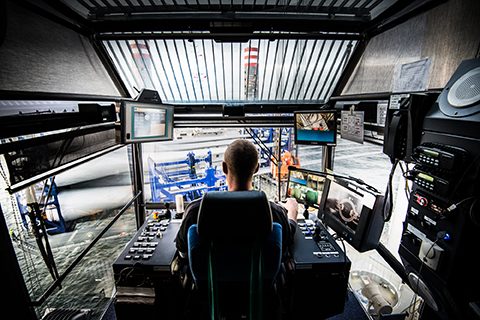
By Jens Frederik Hansen, CEO, A2SEA A/S
We’re living in an increasingly competitive world and, as a leading maritime nation that wants to stay up with the play, Denmark needs to review one particular aspect of its regulatory framework: seafarer taxation. While more conventional vessels are covered by favourable taxation rules, it’s becoming more and more important for this to be extended to specialised vessels operating in offshore industries.
To remain internationally competitive in the offshore wind environment, companies need to be aware of the full spectrum of taxation approaches. And most are, of course, keenly aware that the flag state location of their operations has a significant impact on taxation. In Denmark, we have long had to cope with heavy-handed legislation in this area that may, in fact, be restricting both business viability and local investment plans for our industry.
Restrictive approach
With maritime taxation regimes ranging from a very liberal approach to offshore vessels and activities to a very restrictive approach, Denmark is clearly among the latter. Where the regimes of countries such as Singapore and Cyprus automatically cover most offshore vessels and activities, Danish authorities decide case by case whether the activities performed by a specific offshore vessel makes them eligible for advantageous taxation. Wind farm construction vessels operating under the Danish flag state, for example, might be covered to the extent there is a transportation element included in the service, whereas purely construction-related activities might be taxed normally.
Tax-free competitors
Similarly, rigs and vessels operating in offshore industries under Danish legislation are not included in the Danish International Ship Register (DIS). This means that international competitors, who are part of the tonnage tax scheme, are able to employ almost tax-free labour aboard their vessels, while companies in Denmark are obliged to pay normal tax rates. And you hardly need a degree in business to see that this situation increases operating costs for what, in the case of A2SEA and other crew-heavy enterprises, is a significant portion of overall expenses.
Level playing field
To continue as an international shipping hub and to safeguard future jobs, it is vital for the Danish economy to retain fleets under the Danish flag. But doing this requires re-evaluation of the taxation system such that specialised offshore vessels can operate under the same conditions as more conventional vessels, levelling out the playing field with Denmark’s international competitors.
This is, in fact, one of the major recommendations in the Growth Plan provided to the Ministry of Taxation by Blue Denmark last month: to align seafarer taxation with other jurisdictions by extending the DIS legislation to include offshore construction vessels.
From A2SEA’s point of view, updating the Danish tax system is a key milestone to reassure owners and industry investors that we can continue to viably operate under the Danish flag, and that we can confidently expand activities using our country of origin as home base.
Like this post? Subscribe now and get notified about new content!